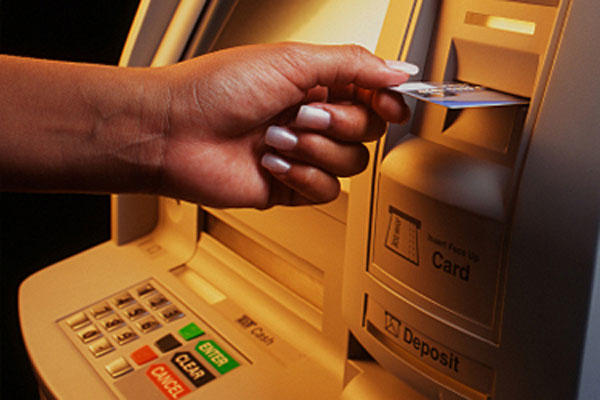Whether or not swipe-fee reform has hurt or helped consumers remains an open question, but there’s little doubt that it’s made free checking harder to come by at big banks. Most large banks now charge monthly maintenance fees to checking account holders, which can only be avoided by meeting balance minimums or using certain services like direct deposit. Banking isn’t as free as it used to be.
But banks haven’t completely given up on freebies. A number of services, payment tools and account bonuses are still provided by most banks free of charge, so even if you’re paying a monthly maintenance fee, you’re still getting plenty of throw-ins for your trouble. Here are a few notable perks that banks still provide free of charge … for now.
Personal Checks and Debit Cards
Usage of checks is decidedly down in retail settings, but they’re still a great way to pay the rent or make person-to-person payments. Thankfully, then, most bricks-and-mortar banks will give you free checks when you open a new account, though banks vary as to how much you’re charged for new checks. And it’s also worth noting that some online banks aren’t always as generous with checks; ING, for instance, will charge you $5 for a stack of 50 checks on sign-up.
Debit cards, on the other hand, are always free with any checking account. And whereas some credit cards (particularly those of the prepaid or rewards variety) may have annual fees, debit cards carry no usage fees. That’s a state of affairs that seemed in doubt as recently as a year ago, when the Durbin Amendment had a banks searching for ways to make up for the revenue they used to get every time you swiped your debit card approach. Bank of America proved to be the first and only bank to try the direct approach of charging for debit card usage, but ran into a buzzsaw of consumer opposition and customer defection. Don’t expect any other banks to try the same gambit -- your debit card should be free to use for the foreseeable future.Sign-Up Bonuses
The way banks have been jacking up checking account fees, you might be forgiven for thinking that operating such accounts are a burden they’d just as soon abandon. But you’d be wrong: banks are still willing to fork over some cold, hard cash just to get you to open an account.
Account bonuses necessarily vary on a seasonal and state-by-state basis, but you’re generally looking at triple-digit cash bonuses. We’ve seen Chase offer between $150 and $250 for opening up a Total Checking account, and PNC currently offers $150 as long as you use direct deposit. That’s a whole lot more of an enticement than the free toaster your community bank used to offer.
So why are banks willing to lay out so much cash just to get customers to sign up for checking accounts? It’s partly because such accounts tend to be a gateway to other, more profitable services.
“If you can get them on the checking account and become their primary provider, then all the goodness comes after that,” says Catherine Graeber, an analyst at Forrester Research. “But it is tough to get new customers sometimes, thats why you’ll see them offering [customers] something to move. They’re trying to capture that audience that’s switching anyway.”
ATMs
ATMs constitute one category of banking services that’s actually getting more free.
No, we don’t mean to say that fees for out-of-network ATM usage are going down. In fact, it’s quite the opposite: The average fee charged by ATMs to non-customers rose to $2.40 last year, according to a survey by Bankrate.
But using your own bank’s ATMs remains completely free, and depending on your financial institution, you may also be able to use other banks’ ATMs for free as well. Credit union members, for instance, have long been able to take advantage of the CO-OP network, which lets you enjoy surcharge-free usage of other credit unions’ ATMs (which in some cases even let you deposit checks). And in the last several years online-only banks have adopted a similar model for their checking accounts. ING, for instance, gives you free access to more than 35,000 ATMs across the country, while Ally’s checking account goes a step further and offers to refund fees incurred at any ATM across the country.
Of course, those ATMs won’t allow you to deposit checks into your online account, but both banks offer ways to deposit checks remotely. Ally uses a program that relies on you owning a scanner, while ING makes things more convenient with a mobile app that lets you deposit by snapping a picture. A number of bricks-and-mortar banks, including Chase and PNC, offer similar check-deposit apps for your smartphone.
Online Banking and Bill-Pay
“Free online bill pay is still quite popular,” notes Credit.com personal finance expert Gerri Detweiler. And for the most part it’s easy to see why banks are so keen on keeping such services free: Just as ATMs save banks from having to build more branches and hire more employees, so too must offering online banking keep customers out of branches an decrease overhead.
Still, some online services seem like they must come with overhead of their own. Take online bill-pay, for instance, which requires the bank to print a check, buy postage and put it in the mail for you.
“I’m actually pretty surprised it’s still predominantly free, as they’re still paying for that stamp,” says Detweiler.
As it turns out, it wasn’t always free; Graeber says that when the service first came along, early adopters were paying in the neighborhood of $5 a month for automated bill-pay. But banks knew that getting the average customer to sign up meant offering the service for free – and they soon realized that this was well-worth the cost.
“They learned early on that it was the most profitable customers using the online channel,” she says. “The people who use these services tend to stay with the bank longer and have more accounts.”
That’s especially true if the online banking service comes with account aggregation tools. Take PNC’s Virtual Wallet program, which allows you to easily balance your checking, savings and money market accounts. Whatever development and overhead costs the service requires, we’re guessing that PNC was happy to pay it if it meant more customers signing up for all three accounts.
Matt Brownell Contributing writer for Credit.com. Matt previously covered retail and personal finance for MainStreet.com, TheStreet's consumer news outlet. Now a freelance business journalist based in New York City, his work has been featured on Fox Business, Yahoo, Newsweek and Bankrate.








